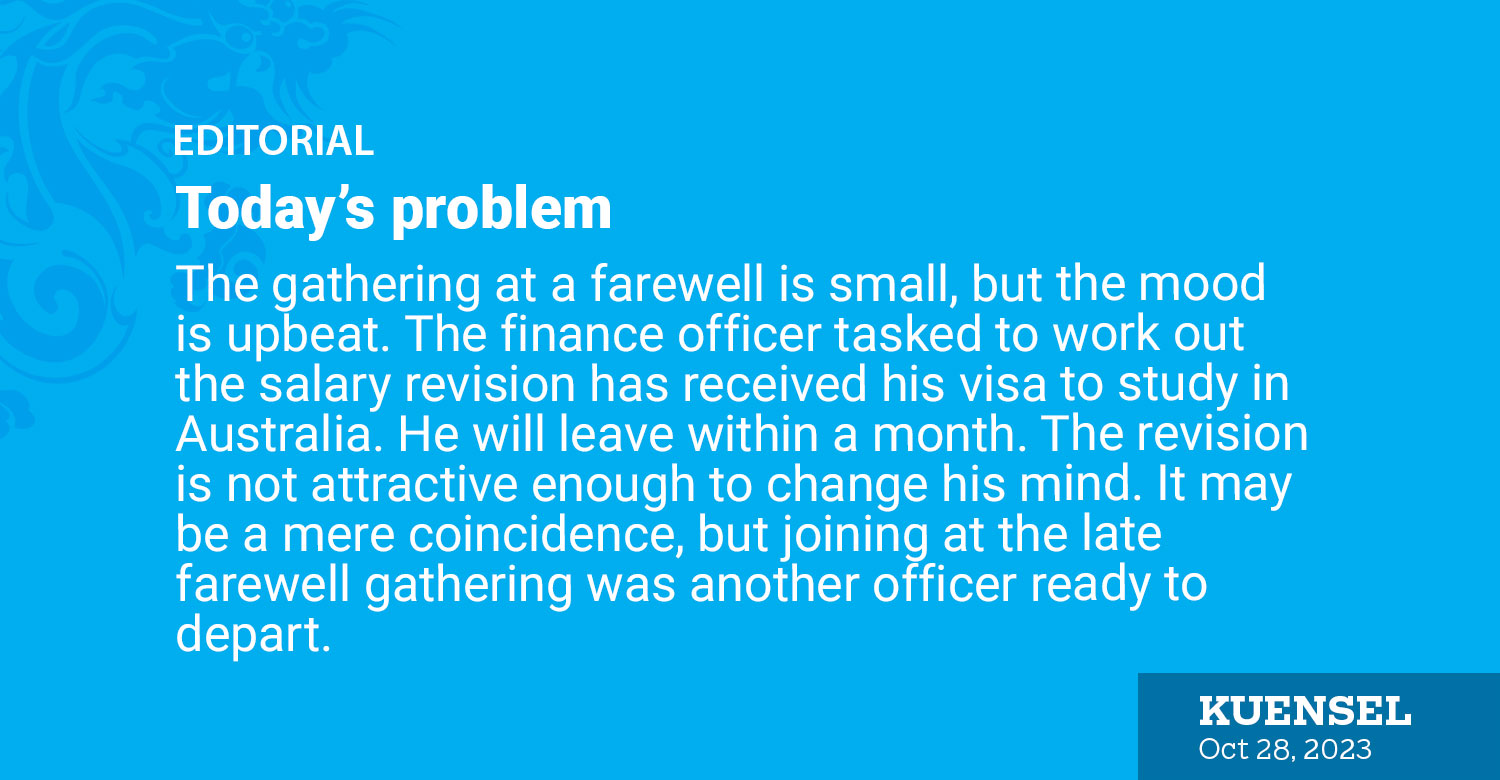The gathering at a farewell is small, but the mood is upbeat. The finance officer tasked to work out the salary revision has received his visa to study in Australia. He will leave within a month. The revision is not attractive enough to change his mind. It may be a mere coincidence, but joining at the late farewell gathering was another officer ready to depart.
The government has revised the salary of civil servants and approved the raise of state-owned enterprises that cover much of the salaried group. Is it stopping people from quitting jobs for the want of opportunities? No, is the resounding answer. The opportunities developed countries provide cannot be resisted even if odd jobs pay more than a minister’s salary.
Many blame the economic slowdown, lack of opportunities and the rising cost of living as they explore opportunities beyond the Bhutanese mountains. How do we prevent them from quitting jobs overnight, forced by the conditions of the visa? There are no answers. We can only hope that they will upgrade their skills and come back to contribute to the nation’s development.
Meanwhile, political parties are trying to cash in on the mass exodus of Bhutanese, especially to Australia where Bhutanese can study, work, take their dependents and extend their stay to earn for a lifetime what many Bhutanese at home cannot. While the exodus of Bhutanese, particularly the skilled and the trained through our free education system, is a major concern, not much can be done to stop the emigration. Unless we create opportunities to etch out a comfortable life in Bhutan, the exodus will continue.
Given the current trend, no governments will be able to stop people from least-developed or developing countries from migrating for opportunities abroad. How do we reverse the trend? There are no answers as of now. Some good ideas may appear as political parties try to woo voters. But how realistic they are can be seen when they make the ideas public. For now, a kitchen helper in Australia knows that his odd job is enough to improve the lifestyle of his extended family in Bhutan.
As the election nears, we will hear promises of making Bhutan a country where non-resident Bhutanese would be welcomed or creating opportunities for them and others to earn better. The reality is different. We can surmise that not many Bhutanese will want to come back to work or create opportunities for fellow Bhutanese. But what we are confident about is that we have to ensure that those who remain behind are recognized. In other words, opportunities have to be created for the private sector to grow if not thrive, civil and public servants to commit and work hard for the nation to progress.
How we do it, on the eve of an election, is left to the political parties vying to govern for the next five years. Blame game could be honey to the ears of many, but we need solid and concrete ideas and policies to convince every Bhutanese that Drukyul, not the Middle East or Australia is the land of opportunity.


